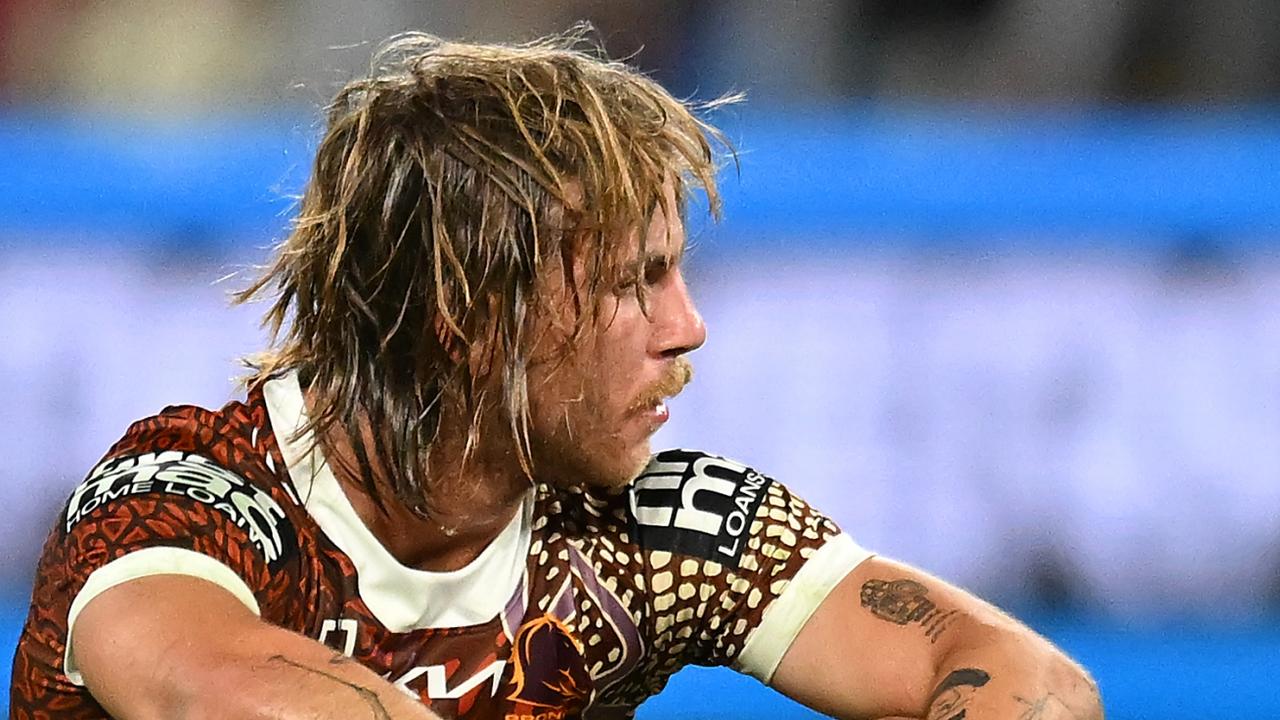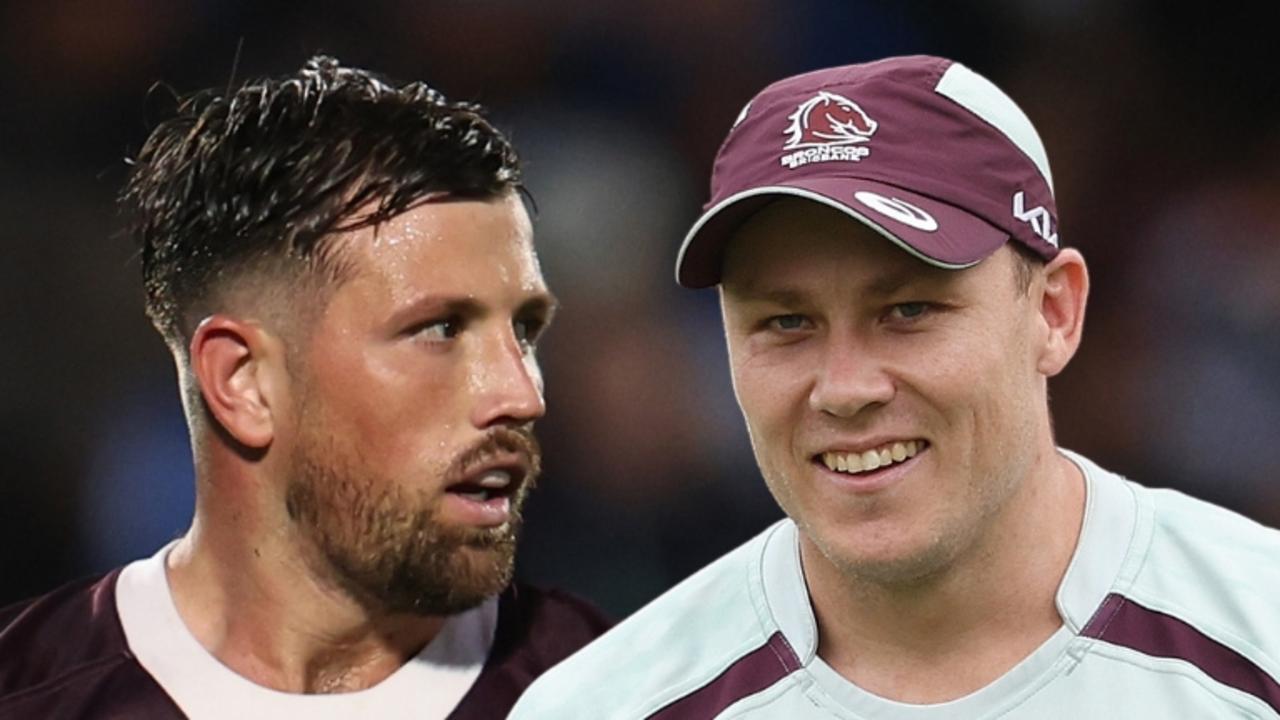Australia, PNG relationship dramatically strengthened by NRL deal
The confirmation of Papua New Guinea’s entry to the NRL is the culmination of years of quiet diplomacy by the Government, BRENT READ talks to one of the key architects of the plan to see why it matters so much for the region.
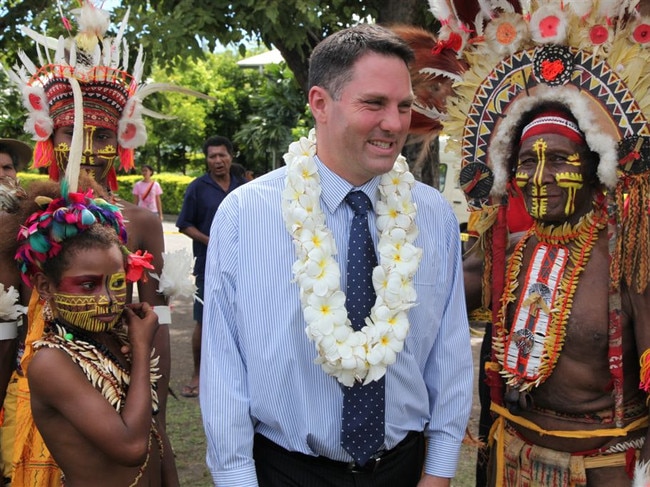
NRL
Don't miss out on the headlines from NRL. Followed categories will be added to My News.
Long before he became deputy Prime Minister of Australia, Richard Marles travelled to Papua New Guinea as he was entering his final years of high school in Geelong.
It was love at first sight.
“It’s the most exotic place on the planet and life is lived in PNG in a way that it’s just not lived anywhere else in the world,” Marles said.
“It is a place of wonderful stories and incredible people with whom we have a very historic connection.”
That connection has been dramatically strengthened this week with confirmation that a team from PNG will join the National Rugby League in 2028.
Marles, who also happens to be the Minister for Defence, concedes it is a seminal moment for not just rugby league, but relations between the two countries.
Sport and politics don’t always mix but this week they most certainly have.
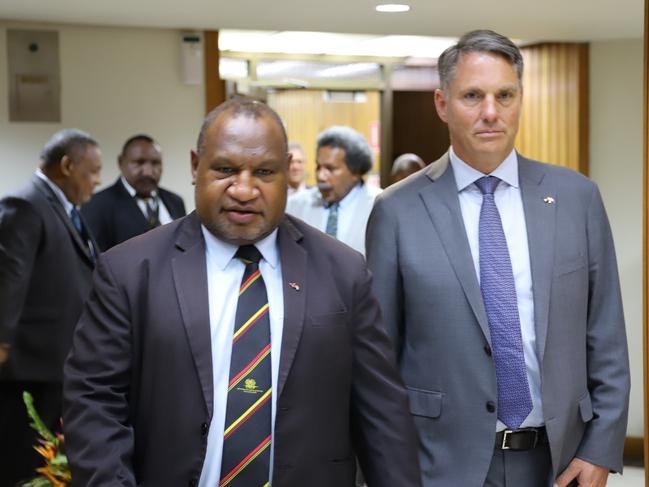
When this masthead began covering the potential for a PNG side in earnest almost two years ago, it was initially with a sense of disbelief.
The thought that rugby league could be used to keep China at bay in the Pacific seemed far-fetched. Truthfully, it bordered on madness.
Yet within the corridors of power in Canberra, the idea of strengthening the relationship between the countries by housing a team in PNG had been brewing for more than a decade.
Marles was among the first to broach the concept with the NRL when he was a parliamentary secretary, holding talks with former NRL chief executive David Gallop to discuss the concept.
It failed to gain traction at the time but continued to simmer in the background - through changes of government and upheaval at Rugby League Central - until Prime Minister Anthony Albanese and Minister for the Pacific Pat Conroy picked up the running in concert with ARL Commission chair Peter V’landys and NRL chief executive Andrew Abdo two years ago.
Marles continued to take an interest but is the first to admit that others deserve the credit for getting the concept over the line.
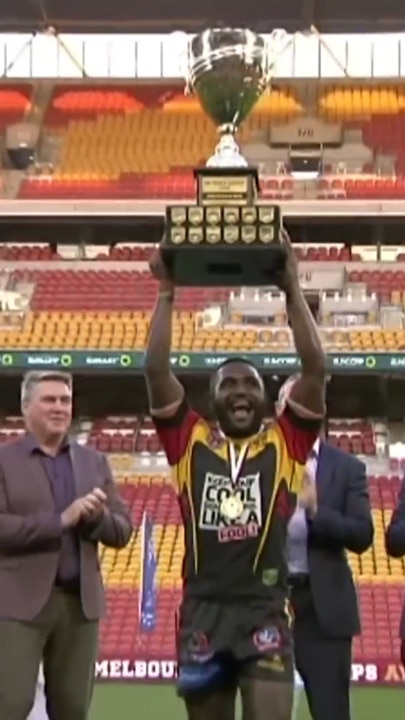
Asked about that meeting with Gallop in 2012, Marles said: “Obviously it was a long way off where it is now and I think it probably is fair to say it lived more in the realm of dreaming than what it is now.
“I was a parliamentary secretary so I was a more junior person then I am now, clearly.
“I got a reception but to be clear, a lot of people have done a lot of work in relation to this - the Prime Minister, Pat Conroy, Penny (Wong) and others.
“It’s one thing to have a dream. You’ve got to translate it into a proposition and obviously the Treasurer’s been really important in relation to this as well.
“So they’re the ones who have done the work and I very much take my hat off to them. There’ll be people in PNG who for literally decades have been looking forward to the moment when this comes about.”
While the people of PNG do cartwheels over the prospect of hosting a team from 2028 - and the existing NRL clubs celebrate a $4 million sweetener to ensure they are on board - there are others who have questioned the cost of the venture.
The federal government will commit $600 million over the next 10 years to ensure the concept is a success - the money will be divided between financing the team, keeping the current clubs on side and work across the Pacific.
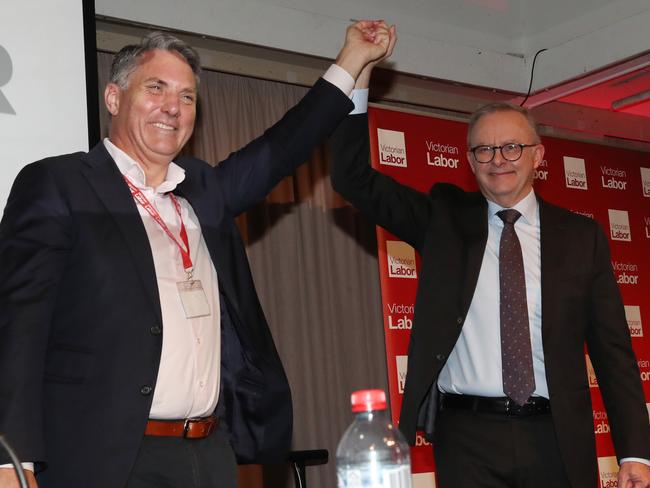
They need it to succeed. The price tag is one thing, the battle for supremacy in the Pacific another. PNG’s foreign minister Justin Tkatchenko this week insisted the deal wasn’t about China but the fine print suggests otherwise, in particular a secret agreement that the funding will cease and the licence will be extinguished if PNG commits to a deal with China.
A by-product of the ‘China clause’’ is the pressure it places on the NRL to get a deal done with the WA government over a team in Perth given they need to have 18 teams locked in for the next round of broadcasting negotiations - the current deal expires at the end of 2027.
They need to be able to sell an 18-team competition with a degree of certainty. The existence of the ‘China clause’ means the NRL will be on edge in the lead-up to 2028. China isn’t going away.
“It’s over a long period of time, but it is priceless,” Marles said of the investment.
“From a foreign policy perspective, our biggest asset in the Pacific …. is our affinity. It’s the way these countries feel about Australia and their level of instinctive connection to it.
“That is what we need to be building upon. That’s the ground on which we need to do our work. This is front and centre.
“You don’t get a better example than this. I genuinely think the outcome of this is going to be priceless.
“They follow the game and they follow it closely and this is an opportunity to be a significant driver of national pride in Papua New Guinea as much as anything.
“I mean, you’re talking about a country which is very culturally diverse - hundreds of different languages, people who live on islands, people who live on the coast, people who live in the highlands who actually come from very different cultural backgrounds.
“This has the potential to be as unifying a kind of phenomenon in Papua New Guinea as anything. That’s good from an Australian national interest point of view to have a strong unified PNG on our border, that makes sense and this could play a part.
“We do lots of things to try to improve our standing with the PNG. Nothing will come close to what this will represent.
“So I’ve long felt that in terms of what the government does here, it’s worth every cent in terms of what it will mean in respect of the connection that we have with PNG and that’s what we’re trying to build.
“Obviously we’re not just trying to build it with PNG, but to be clear, in the Pacific, PNG is probably 90 per cent of the population. So it’s the main game here.”
Winning the battle for hearts and minds in the Pacific is at the forefront of the NRL’s thoughts as well. The international game is floundering in England and France given the perilous state of the code in those countries.
Meanwhile, the likes of Samoa, Tonga and PNG are going from strength to strength. Expansion also provides more opportunities for players and the likely addition of a team in Perth will mean the game needs to find another 60 first graders.
The NRL needs those teams to be competitive for the integrity of the competition and to maximise their broadcast revenues. There are plans to eventually go to 20 teams and again, the Pacific shapes as a vital pool for players.
“I really hope this is a vehicle through which Australians get to see more of PNG and not just the team playing, but what sits behind that team,” Marles said.
“I really am a (Geelong) Cats fan, but the day that the (PNG) jersey comes onto the pitch, I’m definitely a (PNG) fan too.”



